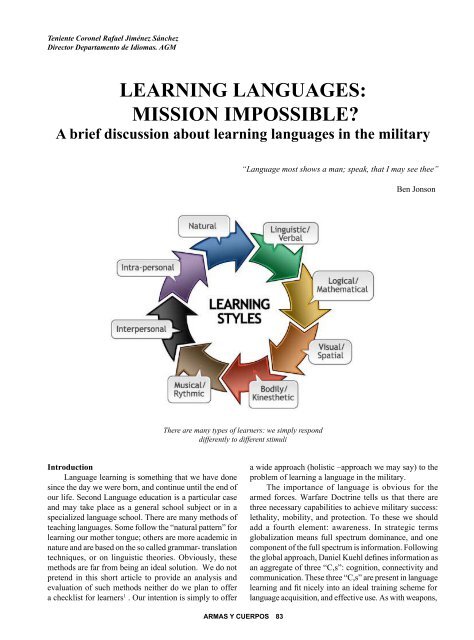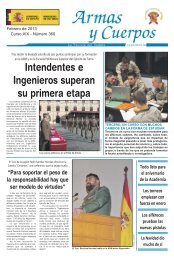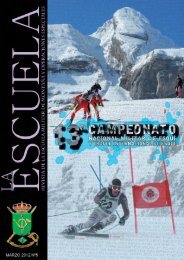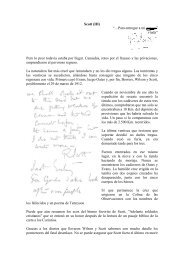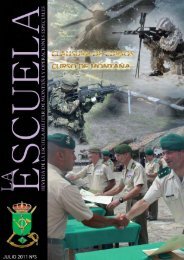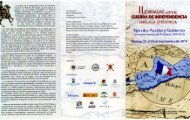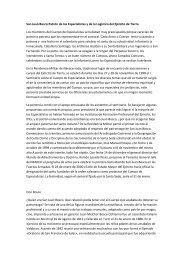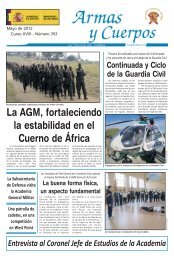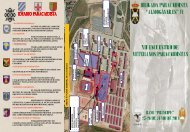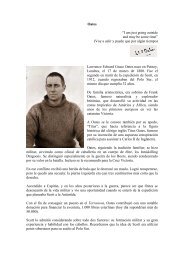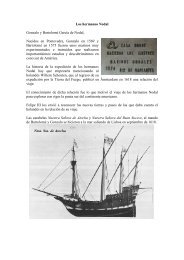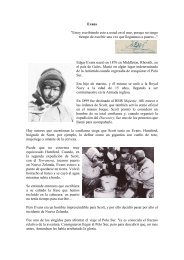Revista Armas y Cuerpos nº 123 - Ejército de tierra - Ministerio de ...
Revista Armas y Cuerpos nº 123 - Ejército de tierra - Ministerio de ...
Revista Armas y Cuerpos nº 123 - Ejército de tierra - Ministerio de ...
Create successful ePaper yourself
Turn your PDF publications into a flip-book with our unique Google optimized e-Paper software.
Teniente Coronel Rafael Jiménez Sánchez<br />
Director Departamento <strong>de</strong> Idiomas. AGM<br />
LEARNING LANGUAGES:<br />
MISSION IMPOSSIBLE?<br />
A brief discussion about learning languages in the military<br />
Introduction<br />
Language learning is something that we have done<br />
since the day we were born, and continue until the end of<br />
our life. Second Language education is a particular case<br />
and may take place as a general school subject or in a<br />
specialized language school. There are many methods of<br />
teaching languages. Some follow the “natural pattern” for<br />
learning our mother tongue; others are more aca<strong>de</strong>mic in<br />
nature and are based on the so called grammar- translation<br />
techniques, or on linguistic theories. Obviously, these<br />
methods are far from being an i<strong>de</strong>al solution. We do not<br />
pretend in this short article to provi<strong>de</strong> an analysis and<br />
evaluation of such methods neither do we plan to offer<br />
a checklist for learners 1 . Our intention is simply to offer<br />
“Language most shows a man; speak, that I may see thee”<br />
There are many types of learners: we simply respond<br />
differently to different stimuli<br />
ARMAS Y CUERPOS 83<br />
Ben Jonson<br />
a wi<strong>de</strong> approach (holistic –approach we may say) to the<br />
problem of learning a language in the military.<br />
The importance of language is obvious for the<br />
armed forces. Warfare Doctrine tells us that there are<br />
three necessary capabilities to achieve military success:<br />
lethality, mobility, and protection. To these we should<br />
add a fourth element: awareness. In strategic terms<br />
globalization means full spectrum dominance, and one<br />
component of the full spectrum is information. Following<br />
the global approach, Daniel Kuehl <strong>de</strong>fines information as<br />
an aggregate of three “C,s”: cognition, connectivity and<br />
communication. These three “C,s” are present in language<br />
learning and fit nicely into an i<strong>de</strong>al training scheme for<br />
language acquisition, and effective use. As with weapons,


